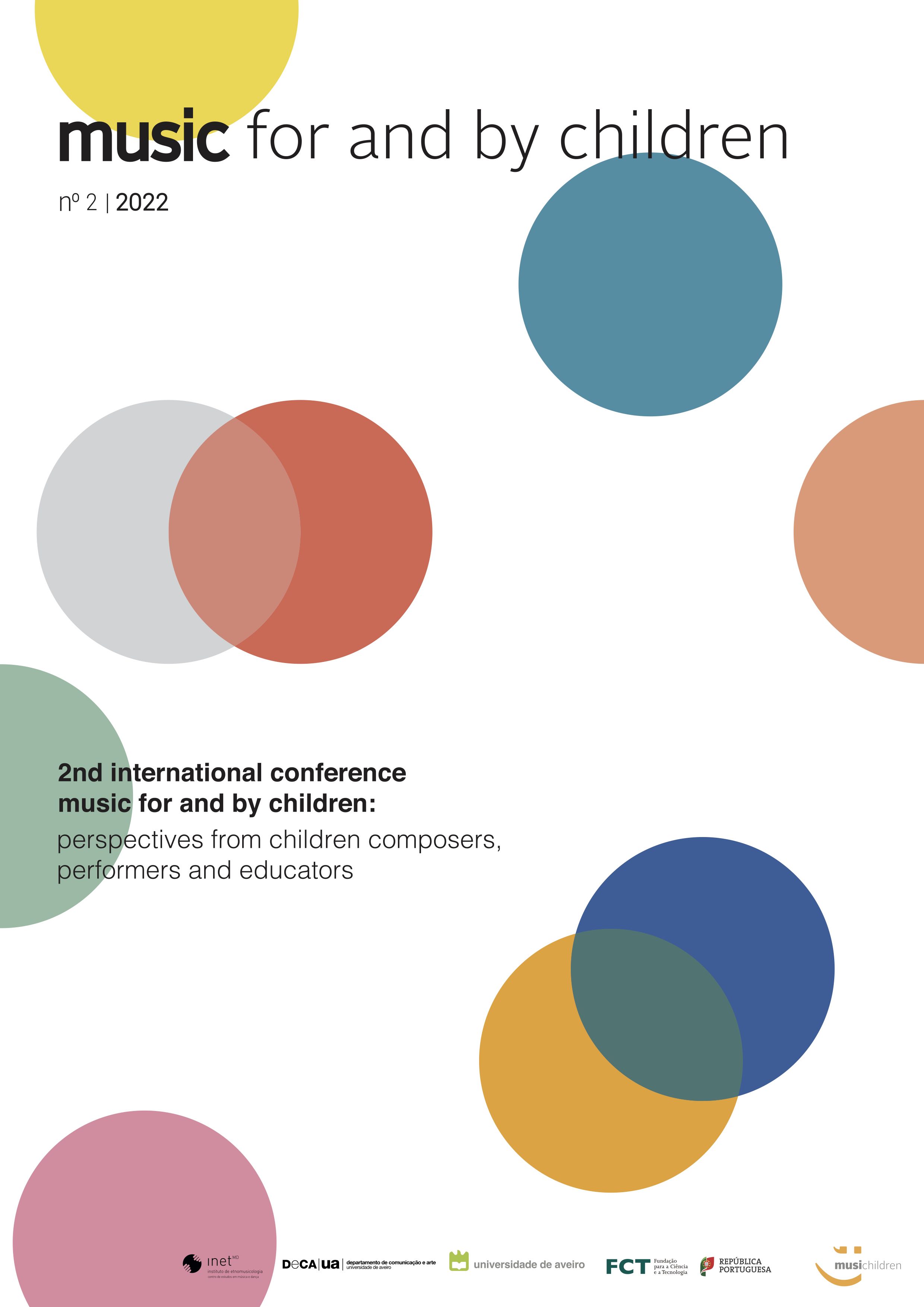The influence of music learning on children's communication and socialisation
Abstract
Theoretical background or Context
Early Childhood Education in Chile, as in Portugal, is considered the first stage of Basic Education in the process of lifelong education. Both countries have some similarities regarding the curricular bases for this level of education, namely the contents related to artistic education, music, and musical expression. Unfortunately, in both countries, there are limitations in the competences of kindergarten teachers which prevent the adequate development of these artistic areas among children.
To overcome the artistic-musical limitations of kindergarten teachers, an Intervention Project was developed in Chile, between 2011 and 2013, in 3 Kindergartens of the network of the Junta Nacional de Jardines Infantiles de Chile, which included a Music Training Programme. The aim of this training programme was to improve the music skills of 18 educators, including learning the violin instrument, using the methodology of Doctor Shinishi Suzuki. After the completion of this Music Training Programme, the Educators replicated the knowledge obtained with the children with whom they work (Experimental Group) to learn the violin instrument.
Aims
The present study aims to evaluate the results obtained in this Intervention Project.
Methodology
An experimental methodology was used: the results of the blind application of the standardised IEPA test Instrumento de Avaliación para el Aprendizaje, at the beginning and at the end of the intervention, in the areas of communication and socialisation, were compared with the children belonging to both the Experimental Group (125 children) and the Control Group (2001 children), the latter consisting of all the children from the kindergartens of the JUNJI Network who did not participate in the intervention. Furthermore, two questionnaire surveys were prepared and validated, addressed to the kindergarten teachers and to the parents of the children involved, whose answers were subjected to the content analysis technique.
Results/Findings
The results showed significant differences in terms of the development of Communication and Socialisation, using the evaluation carried out with the IEPA instrument, between the children in the Experimental Group and those in the Control Group, with the Experimental Group scoring significantly higher than the Control Group.
Furthermore, from the analysis of the answers obtained in the questionnaires, it was concluded that the Kindergarten Educators consider that they have developed good collaborative work, improved the coexistence, and shared of knowledge, learnt new methodologies, through significant learning, including the learning of the violin, and the incorporation of music in their activities with the children. They felt valued as people and that others believed in them as professionals. They were able to learn and replicate the knowledge acquired and felt they produced an improvement in the children's developmental areas, which was also recognised by the parents.
Conclusions/Final considerations
This study is a real contribution to validate this type of projects showing that if we enhance the skills of Early Childhood Educators in Music, they can replicate their knowledge with the children they work with. This study is a real contribution to future planning in teacher training. Future projects of this type may be replicated in the future, in other contexts, namely in Portugal.
Copyright (c) 2023 Music for and by children

This work is licensed under a Creative Commons Attribution 4.0 International License.





